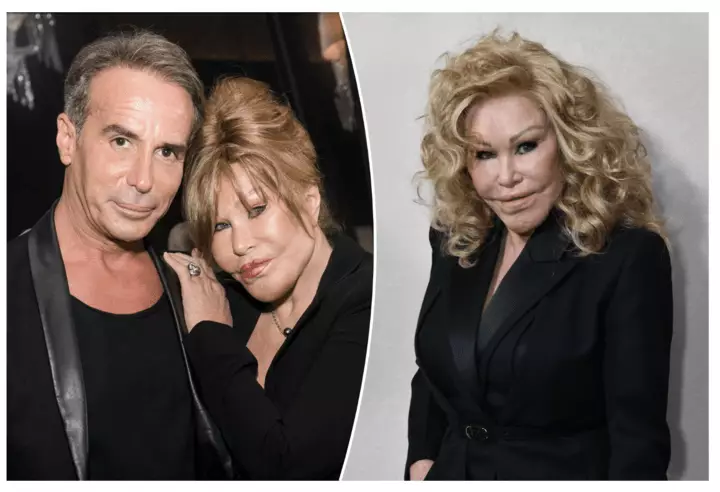Jocelyn Wildenstein, famously dubbed “Catwoman” by the media due to her dramatic cosmetic transformations, was more than just a figure of sensational gossip. The recent passing of this New York socialite has sparked conversations that delve deeper into her life—a life rich with complexity, financial turbulence, and untold love. While much of the public narrative has focused on her eccentricities and financial struggles, it invites a broader examination about who she truly was beyond the tabloid headlines.
Jocelyn’s story began far from the glitzy streets of Manhattan; she was born in Lausanne, Switzerland, and ascended to fame through her marriage to Alec Wildenstein, an art dealer from a prominent family. Their union was marked by its influence in the art world as they operated a successful Paris-based gallery. However, the relationship quickly spiraled into a narrative filled with betrayal, public scrutiny, and later, a contentious divorce that would turn Jocelyn into a household name for all the wrong reasons.
The tabloids frequently painted her as a caricature, reducing her existence to that of a woman obsessed with plastic surgery and extravagant living. However, Lloyd Klein, her fiancé and confidant for over two decades, speaks differently of her. He firmly asserts that Jocelyn was not the broken and ridiculed figure the media portrayed. Klein contends, “She was fabulous. She was the love of my life,” revealing a more intimate, affectionate side to her character—one that often goes unnoticed amidst the loud clamor of sensationalism.
The Financial Apex and Abyss
Reports suggest that Jocelyn was once a billionaire in her own right, securing a staggering $2.5 billion as part of her divorce settlement. Moreover, she was reportedly promised a significant annual payout by Alec Wildenstein, who passed away in 2008. Such figures indicate a peak financial moment in her life. Yet, the whispers of financial mismanagement, attrition, and family disputes clouded her later years, taking a toll on her lifestyle and mental well-being.
In 2018, Jocelyn filed for bankruptcy—a staggering decline from her previous affluence. This situation became remarkably public and visible, with media reports, including one from the Sunday Times, indicating that she claimed to have “zero” dollars in her checking account. Klein argues that much of Jocelyn’s wealth dwindled due to legal battles and the cessation of support from her former in-laws after the death of Alec. This intermittent financial security reflects the chaotic fallout post-divorce, illustrating how quickly circumstances can shift for individuals caught in the throes of family dynamics and public perception.
From her controversial nickname to the media’s relentless focus on her plastic surgeries, Jocelyn represented a larger societal phenomenon that often places undue judgment on women, particularly those who challenge conventional standards of beauty. Klein mentions that Jocelyn “never wanted to look like a cat” and explains that the public’s reception of her appearance was, in many ways, a projection of societal anxieties regarding femininity, beauty, and aging.
Despite her frequently lampooned aesthetic choices, Klein insists Jocelyn had a sense of humor about this attention. He recalls humorous anecdotes, such as her charming way of embracing her nickname when making restaurant reservations, illustrating a resilient spirit that defied ridicule. Such reflections highlight the level of emotional intelligence she possessed—able to laugh at herself even when faced with public scorn.
Beyond intricate narratives of wealth and surgery, what emerges from this examination is a profound sense of loss for Klein and those who knew Jocelyn well. Their relationship was marked by shared joys and mutual affection, whose depth transcended any monetary aspect. He recalls their plans for a shared resting place, a testament to their enduring bond shaped by shared experiences and aspirations.
As her estate now faces the complexities of legal divisions and family dynamics, Klein emphasizes that what he seeks is dignity for Jocelyn. “I was not with her for the money,” he asserts, underscoring the emotional wealth of their relationship over any financial downturns.
In a world quick to mold narratives around iconic figures like Jocelyn Wildenstein, her story serves as a reminder to look beyond sensational headlines and to consider the human experience beneath the glitter and gloss. As we reflect on her life, we recognize the multitude of layers that define us all, emphasizing empathy and understanding for every story that unfolds in the public eye.

Leave a Reply